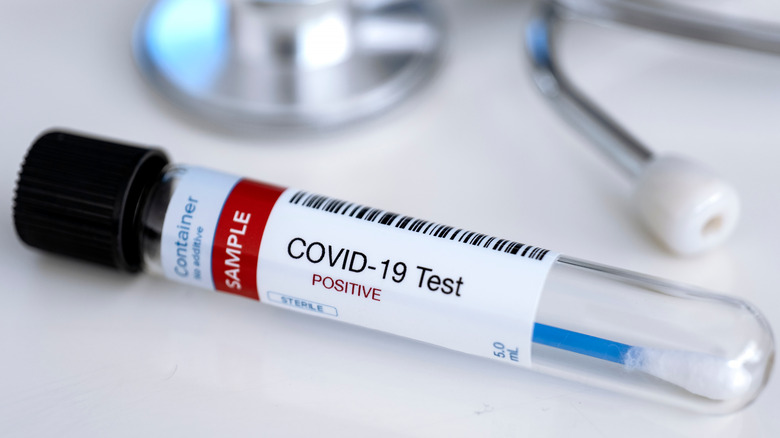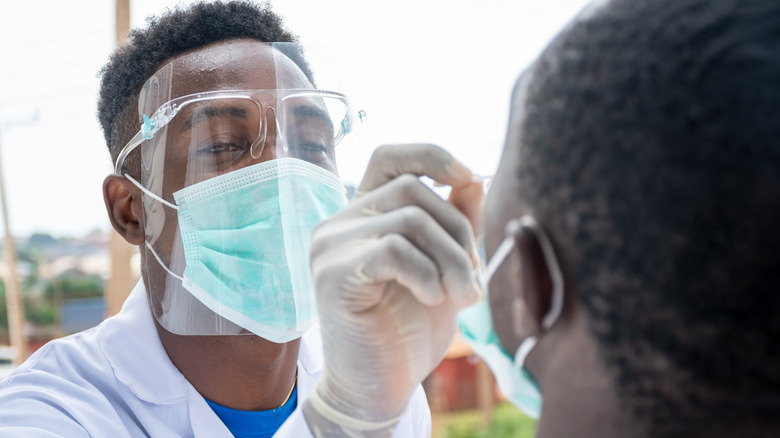What Should You Do If You Get A Breakthrough Infection Of COVID-19?
The Pfizer, Moderna, and Johnson & Johnson COVID-19 vaccines are all designed to reduce the rates of severe symptoms, hospitalizations, and deaths from Coronavirus infection across the country (per the Centers for Disease Control and Prevention). Disease experts emphasize that our best line of defense against the virus is for all to get vaccinated as soon as possible. While widespread vaccination will slow the transmission of infection and protect the world's most vulnerable populations, even with vaccination, breakthrough cases are not impossible.
The likelihood of an individual testing positive for COVID-19 after having been fully vaccinated is minor, with research showing the odds being less than half of 1% (via WebMD). Due to the effectiveness of the vaccines, many people who contract the virus will be asymptomatic. Therefore, appropriate precautions should be taken to ensure we don't continue to spread the infection to others. With rapidly changing information since the start of the pandemic — about such things as self-isolation guidelines, workplace protocols, and the list of COVID-19 symptoms — it's important to stay up-to-date with advice from the Centers for Disease Control and Prevention (CDC) to help keep ourselves and those around us safe.
Quarantine guidelines have changed since the start of the pandemic
According to the Centers for Disease Control and Prevention (CDC), a COVID-19 breakthrough case is considered any case where the presence of the virus has been found in a fully vaccinated individual two weeks or more after vaccination. The most common symptoms of a COVID-19 breakthrough case can include cough, fever, fatigue, muscle aches, loss of taste and smell, as well as milder symptoms such as a runny nose, sore throat, headache, and diarrhea (via CNN).
Medical experts advise that the most important thing a person who has developed a breakthrough case of COVID-19 should do is to quarantine and self-isolate from others (via WebMD). Generally speaking, in breakthrough cases, the recommended quarantine period is for ten days following a positive test result. However, it's advised to consult with a physician to determine how long your specific quarantine period should last, as the guidelines may be different depending on if the individual is symptomatic or asymptomatic.
If leaving the house is required for essential outings such as grocery shopping or medical appointments, be sure to wear a mask in public that covers both your nose and mouth to prevent the spread of the virus through respiratory particles from a cough or sneeze (via Johns Hopkins Medicine). It is also advised that those who have tested positive inform any friends or family members with whom they have been in close proximity so they can get tested themselves.


